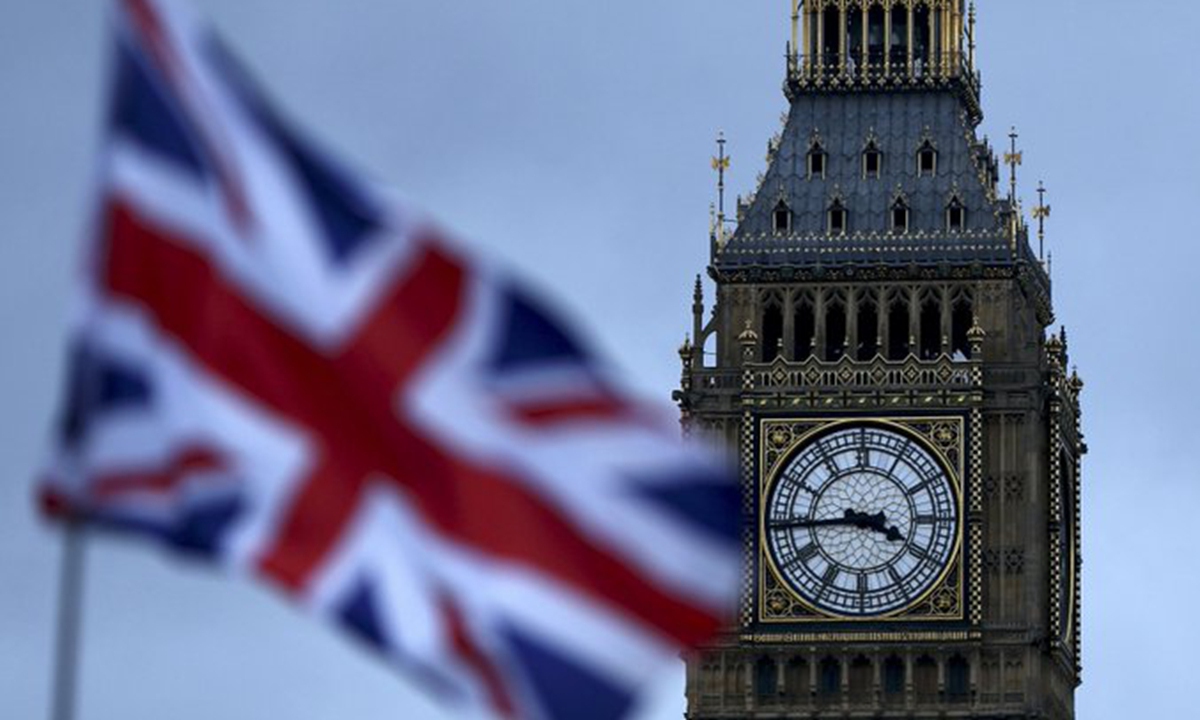
File photo
The UK appears to be turning to the Indo-Pacific region as one of its pivots for post-Brexit economic and trade cooperation, which, however, makes more geopolitical sense than it does from an economic perspective.Britain is now pursuing trade deals with Australia, the US and countries "particularly in the Indo-Pacific region, a huge growth market for the future," UK Foreign Secretary Dominic Raab wrote in The Telegraph late on Sunday. He also mentioned that "In January, the Prime Minister will visit India to boost our economic ties with the world's biggest democracy."
It's not news that the UK has been tilting toward a so-called Indo-Pacific strategy. The UK government may sincerely think they have geopolitical interests in the Indo-Pacific region, but in fact, participating in a geopolitical game may point to nothing but a distraction amid the daunting tasks of minimizing economic shock from trade post-Brexit and worsening coronavirus epidemic. And it would be a worrying sign for the UK economy if its government seeks to establish a new trade network from a geopolitical, not economic, perspective.
While the UK reached a long-awaited trade deal with the EU before the expiration of the Brexit transition period, significant uncertainties still linger over its trade and challenges facing its economy remain abundant. There is no denying that striking a trade deal is better than a no-deal Brexit, but a trade shock for the UK economy may still be inevitable.
Specifically, although the deal allows for tariff- and quota-free trade in goods between the UK and EU, it is worth noting that there are not many provisions to cover the service sector in the agreement, media reports said. This means the UK services businesses may face new barriers when entering the EU market. The UK services sector accounts for 80 percent of its economy, while more than 40 percent of the UK exports to the EU are services, according to media reports.
Moreover, the disruption caused by the renewed lockdowns in the UK following the emergence of a new COVID-19 variant may derail its economic recovery and weaken its ability to minimize the economic impact of Brexit.
With its economic growth and the most important trade relationship paralyzed by uncertainty, the UK's attempt to divert its attention to the Indo-Pacific region that is of little economic significance to it seems quite confusing.
In fact, the so-called Indo-Pacific strategy has failed to yield any notable economic cooperation results in recent years, maybe because it was only a geopolitical design from the start. While observers have touted the region's growth potential, the Indo-Pacific strategy in terms of either industrial chain or trade cooperation is actually unfounded with no sign of any substantial support.
In this sense, it would be a disappointment for the UK if it pins its post-Brexit trade hope on a geopolitical fantasy.



